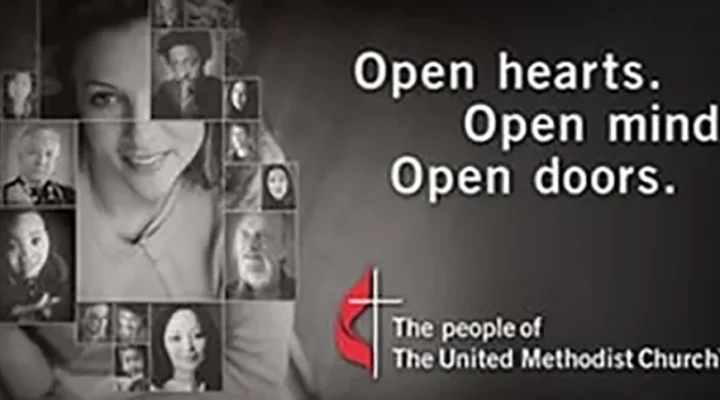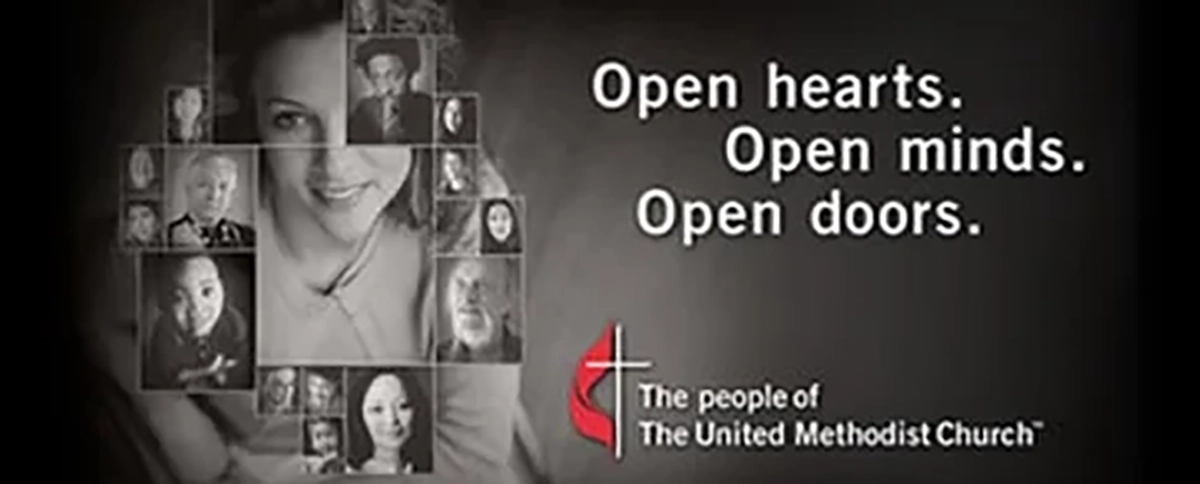It’s no secret that The United Methodist Church is fracturing, primarily over LGBTQ issues. Thousands of UMC churches already have disaffiliated from the denomination. Large numbers of others are considering doing so before the end of 2023. And many more will likely join the exodus in 2024 after General Conference (the highest legislative body of the UMC) lays out final “divorce” guidelines for splitting up.
Most of the disaffiliating churches are joining the Global Methodist Church, a new conservative Methodist denomination.

Martin Thielen
However, not all members of disaffiliating churches want to leave the UMC. As a result, thousands of United Methodists have become ecclesiastical orphans. In response, some United Methodist Conferences have created “Lighthouse” congregations to adopt these homeless believers.
Lighthouse communities of faith are committed to staying in the UMC and stand ready to welcome people who have lost their UMC home to disaffiliation. In short, Lighthouse congregations offer an alternative to people who don’t want to leave the UMC and who don’t want to identify with a denomination that won’t honor gay marriage or accept gay clergy.
They need an alternative
While I applaud and celebrate this UMC “Lighthouse” effort, the need for alternative faith communities extends far beyond the United Methodist Church. Sadly, millions of people throughout America need healthy alternatives to toxic religion.
“The need for alternative faith communities extends far beyond the United Methodist Church.”
For example, people look at the evangelical church and see (at least in part) a spirit of anger, fear, judgment, hyper-partisanship and white Christian nationalism. They see a church that is anti-LBGTQ, anti-immigrant, anti-science, anti-women and, increasingly, antidemocratic. And they see a church that seems far more interested in conspiracy theories and culture wars than in loving God and neighbor.
In short, they see a Christian tradition that has largely jettisoned the spirit, teachings and example of Jesus. They need an alternative.
People look at the Roman Catholic Church and see (at least in part) an arrogant hierarchy that cares more about protecting their clergy and institution than protecting vulnerable children. They see a church that stubbornly resists transparency and accountability concerning their horrific pedophile priest scandal. And they see a church so focused on abortion that they neglect virtually every other pressing social issue of the day. They need an alternative.
People look at the Mainline church and see (at least in part) endless conflicts over human sexuality filled with bitter antagonism, hostile court battles and intentional disinformation campaigns. They see a bureaucratic, ineffective, aging, old-fashioned church that resists making needed changes to thrive in the 21st century. And they see a church more concerned about institutional survival than living out its mission. They need an alternative.
It’s easy to complain about the sorry state of contemporary American religion. And there’s plenty to complain about, as noted above. But for those who still care about the future of Christianity, critiquing unhealthy faith is not enough. We also need to provide a viable alternative.
A lesson from a politician
This is true not only in the religious world but also in the political arena. Maryland Gov. Wes Moore understands this reality. Moore, a rising young Black Democratic leader (often compared to Barack Obama) can condemn the MAGA movement with the best of them. As a Black man in America, he knows firsthand the dangers of extreme right-wing politics. But he also realizes that condemning his political adversaries is not enough. To make any real difference, he also needs to offer an appealing alternative.
In a recent story in Time magazine, Moore is quoted as saying:
I think we’re in pretty bad shape. … The rhetoric has been pitched up. … There are more incidents of political violence, antisemitism, homophobia, racism. … People have to understand how dangerous this entire movement is. It just means that our pushback has got to be that much more aggressive, that much more thorough, and that much more loving. Because I don’t think you are going to be able to defeat this thing simply by calling it bad. You’ve got to defeat it by also offering an alternative.
Gov. Moore is right. Condemning toxic politics (or religion) won’t do much good unless you also provide a better option.
An opportunity
I spent most of my ministerial years serving in the Bible Belt South, where the dominant religious tradition was (and is) conservative evangelicalism. Although I sometimes critiqued religious-right fundamentalism, I mostly focused on offering a healthy alternative.
For decades, in numerous settings, I did my best to lead my congregation to be an inclusive, open-minded, grace-filled alternative to the toxicity of exclusive, narrow-minded, judgmental fundamentalism.
The congregations I served that embraced this vision experienced significant revitalization and growth. They discovered that large numbers of people, even in the Bible Belt, are looking for a viable alternative to unhealthy religion.
“Progressive churches can boldly proclaim to their communities that the answer to bad religion is not no religion but good religion.”
Sadly, toxic religion abounds in America today, doing great damage to the cause of Christ and church. But that tragic reality also provides an opportunity. Progressive churches can boldly proclaim to their communities that the answer to bad religion is not no religion but good religion. They certainly don’t have to be perfect. But they do need to provide a viable alternative to unhealthy faith.
A lot of people today yearn for a positive, progressive, life-enriching community of faith. As a reader of my Doubter’s Parish website recently wrote, “I’m sure there are wonderful churches out there — churches where love is the main thing, where belief in doctrine isn’t the main thing, and where following Christ is the mission. But they are not easy to find.”
If progressive churches will provide that kind of faith community, however imperfectly, a good number of people will be attracted to them.
In the end, the best answer to bad religion is good religion. Jesus understood that. In the face of the arrogant, loveless, judgmental and legalistic religion of his day, Jesus offered a healthy alternative of humility, grace, love, mercy, compassion and justice. He calls today’s believers to do the same.
The sign out front
Several years ago, before I retired from pastoral ministry, a young family visited my church, an intentional and unapologetic mainline United Methodist congregation in a community full of conservative evangelical churches. After attending for several months, they scheduled an appointment with me to discuss baptism and membership. I asked them, “What attracted you to our congregation?”
“When we discovered the church inside lived up to the sign outside, we wanted to become members.”
They said, “The sign.”
I said, “What sign?”
They said, “The sign out front that says, ‘Open Hearts, Open Minds, Open Doors.’ We thought all churches were narrow-minded and judgmental. So, when we saw your sign, we decided to visit. When we discovered the church inside lived up to the sign outside, we wanted to become members.”
Martin Thielen, a retired United Methodist minister, is the creator and author of www.DoubtersParish.com. Before transferring to the UMC he served as editor of Proclaim magazine at the Baptist Sunday School Board.
Related articles:
After spiritual trauma, finding welcome in church once more | Opinion by Mallory Homeyer Herridge
Let’s consider the moral courage it takes for some to reconnect with church after the pandemic | Opinion by Mark Tidsworth
Lighthouse Congregations guide individuals who want to ‘stay UMC’


